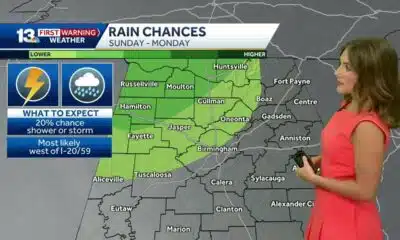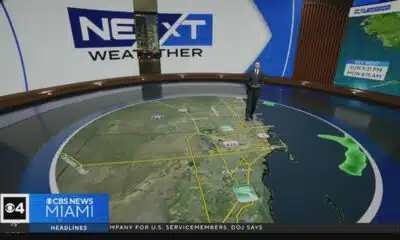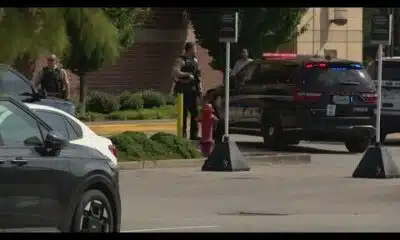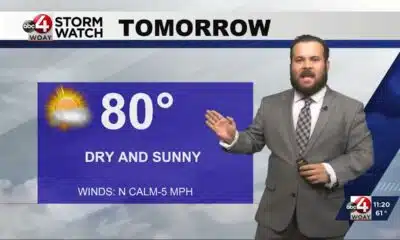News from the South - North Carolina News Feed
Election officials offers tips, warn of delays for western NC voters
SUMMARY: In response to the challenges posed by Hurricane Helen, the State Board of Elections is working to ensure voters from the affected 25 counties can still participate in the upcoming election. They will meet this week to develop strategies for safe and secure voting, including resources for those impacted. Voters can drop off absentee ballots or vote in person during the early voting period or on Election Day. Those displaced temporarily can request ballots sent to a new address. The Board encourages communication with local election offices to manage any necessary changes. More information is available on their website.
North Carolina election officials are working to try to ensure that voters affected by the powerful storm can still cast their ballots in the 2024 general election.
More: https://abc11.com/post/helene-nc-election-officials-offers-tips-warn-delays-western-voters-wake-storm-damage/15376344/
Watch: https://abc11.com/watch/live/11065013/
Like us on Facebook: https://www.facebook.com/ABC11/
X: https://twitter.com/ABC11_WTVD
TikTok: https://www.tiktok.com/@abc11_eyewitnessnews
News from the South - North Carolina News Feed
Family, friends hold candlelight vigil in honor of Giovanni Pelletier
SUMMARY: Family and friends held a candlelight vigil in Apex to honor Giovanni Pelletier, a Fuquay Varina High School graduate whose body was found last month in a Florida retention pond. Giovanni went missing while visiting family, after reportedly acting erratically and leaving his cousins’ car. Loved ones remembered his infectious smile, laughter, and loyal friendship, expressing how deeply he impacted their lives. His mother shared the family’s ongoing grief and search for answers as authorities continue investigating his death. Despite the sadness, the community’s support has provided comfort. A celebration of life mass is planned in Apex to further commemorate Giovanni’s memory.
“It’s good to know how loved someone is in their community.”
More: https://abc11.com/post/giovanni-pelletier-family-friends-hold-candlelight-vigil-honor-wake-teen-found-dead-florida/17811995/
Download: https://abc11.com/apps/
Like us on Facebook: https://www.facebook.com/ABC11/
Instagram: https://www.instagram.com/abc11_wtvd/
Threads: https://www.threads.net/@abc11_wtvd
TIKTOK: https://www.tiktok.com/@abc11_eyewitnessnews
News from the South - North Carolina News Feed
NC Courage wins 2-1 against Angel City FC
SUMMARY: The North Carolina Courage defeated Angel City FC 2-1 in Cary, ending their unbeaten streak. Monaca scored early at the 6th minute, followed by Bull City native Brianna Pinto’s goal at the 18th minute, securing a 2-0 halftime lead. Angel City intensified in the second half, scoring in the 88th minute, but the Courage held firm defensively to claim victory. Pinto expressed pride in the win, emphasizing the team’s unity and playoff ambitions. Nearly 8,000 fans attended. Coverage continues tonight at 11, alongside college football updates, including the Tar Heels vs. Richmond game live from Chapel Hill.
Saturday’s win was crucial for the Courage as the regular season starts to wind down.
https://abc11.com/post/north-carolina-courage-wins-2-1-angel-city-fc/17810234/
Download: https://abc11.com/apps/
Like us on Facebook: https://www.facebook.com/ABC11/
Instagram: https://www.instagram.com/abc11_wtvd/
Threads: https://www.threads.net/@abc11_wtvd
TIKTOK: https://www.tiktok.com/@abc11_eyewitnessnews
News from the South - North Carolina News Feed
Is nail gel actually harmful? It's complicated
SUMMARY: Gel nail polishes were recently banned in the EU due to the chemical TPO, which helps the gel harden under UV light. Concerns stem from studies showing potential reproductive risks in rats fed TPO, but humans aren’t exposed this way. The margin of exposure calculated for TPO is very high (1,515), suggesting it’s safe for people. More significant risks come from UV light used to cure nails, which may contribute to skin cancer over time. To stay safe, consider applying sunscreen before your salon visit and discuss toxin-free polish options with your aesthetician. Ultimately, balanced caution is key.
Certain gel nail polishes are no longer widespread in Europe as a chemical was banned due to potential health risks with long-term exposure. But a closer look at the study prompts some questions.
-
News from the South - West Virginia News Feed6 days ago
Protesters in D.C. flood the streets demanding an end to Trump’s military deployment
-
News from the South - Arkansas News Feed6 days ago
‘One Pill Can Kill’ program aims to reduce opioid drug overdose
-
News from the South - Virginia News Feed7 days ago
On the record: Winsome Earle-Sears
-
News from the South - Missouri News Feed6 days ago
1587 Prime gives first look at food, cocktail menu ahead of grand opening in KC
-
Mississippi News Video6 days ago
Interview: Come see Baptist at WTVA Senior Health Fair
-
The Conversation7 days ago
How is paint made?
-
News from the South - Alabama News Feed6 days ago
Alabama lawmaker revives bill to allow chaplains in public schools
-
News from the South - Texas News Feed6 days ago
‘Resilience and hope’ in Galveston: 125 years after greatest storm in US history | Texas








































